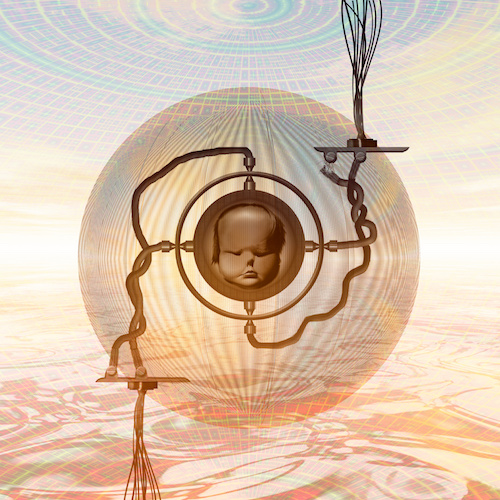 Culture & Ethics
Culture & Ethics
 Faith & Science
Faith & Science
Neuroscience Busts Transhumanist Immortality Fantasy

Transhumanism is a materialist religion. That’s not an oxymoron. Few transhumanists believe in anything beyond mere materiality, so they look upon SCIENCE! as religionists do to God — as a future bestower of eternal life.
For me, the trouble with transhumanism is the movement’s eugenic Utopianism, and anti-human exceptionalism values. But I have never thought that the movement’s prophesied “Singularity” would, like the “Rapture” embraced by certain brands of Christianity, rescue us from death.
Now a prominent neuroscientist applies real science to demonstrate why a predominate transhumanist eschatological expectation of minds being uploaded into computers is a fantasy.
The problem? The brain’s astonishing complexity — which neuroscientist Kenneth D. Miller details at too great a length to repeat here. The takeaway? We are all going to die. From “Will We Ever Be able to Upload Your Brain?“:
Neuroscience is progressing rapidly, but the distance to go in understanding brain function is enormous. It will almost certainly be a very long time before we can hope to preserve a brain in sufficient detail and for sufficient time that some civilization much farther in the future, perhaps thousands or even millions of years from now, might have the technological capacity to “upload” and recreate that individual’s mind.
Miller, like most transhumanists, thinks there is nothing beyond this life. But he made his peace with his own mortality:
I certainly have my own fears of annihilation. But I also know that I had no existence for the 13.8 billion years that the universe existed before my birth, and I expect the same will be true after my death. The universe is not about me or any other individual. We come and we go as part of a much larger process. More and more I am content with this awareness.
We all find our own solutions to the problem death poses. For the foreseeable future, bringing your mind back to life will not be one of them.
Grappling with our mortality is a great driver of human attainment: Religion, philosophy, and science all flow directly from our knowledge that we are born to die. Pretending we can change that is a fool’s game, and could distract us from making the most of our time in this mortal coil.
Image: � diuno / Dollar Photo Club.
